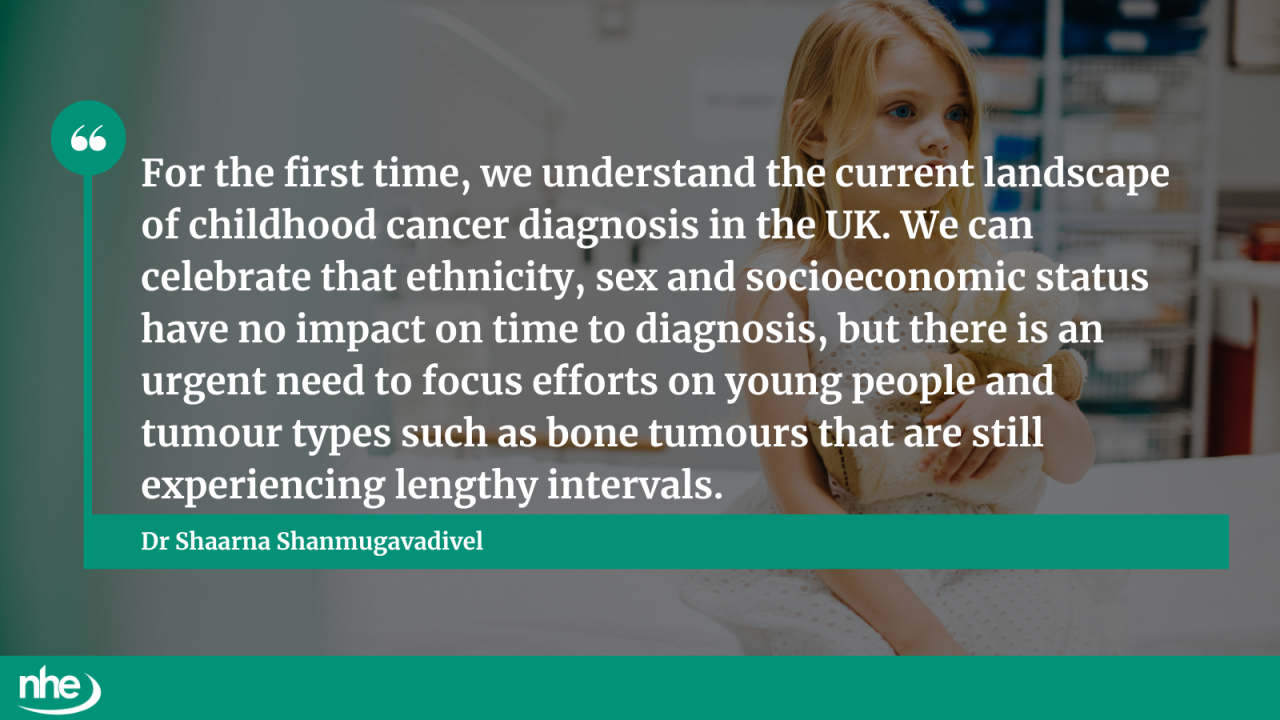A major new study led by the University of Nottingham has revealed that young people with certain cancers, such as bone tumours, are facing significantly longer times to diagnosis.
The findings, published in The Lancet Regional Health – Europe, highlight the urgent need for earlier detection and intervention in childhood and adolescent cancer care.
The Childhood Cancer Diagnosis Study, funded by the National Institute for Health and Care Research (NIHR), analysed data from 1,957 children and young people (aged 0–18) diagnosed with cancer between September 2020 and March 2023.
Key Findings include:
- Median time to diagnosis: 4.6 weeks
- Teenagers (15–18 years) had the longest median time: 8.7 weeks
- Infants (<1 year) had the shortest: 3.7 weeks
- Bone tumours had the longest diagnostic interval: 12.6 weeks
- Kidney tumours had the shortest: 2.3 weeks
- 74% of patients had 1–3 medical visits before diagnosis
- 67% were diagnosed in an emergency setting
Importantly, the study found no significant differences in diagnosis times based on sex, ethnicity, or socioeconomic status, suggesting equitable access to healthcare services.
The research team, led by Dr Shaarna Shanmugavadivel, Professor Shalini Ojha, and Professor David Walker, also examined how patients were diagnosed. Most first consulted a GP or emergency doctor, with certain cancers—such as Langerhans Cell Histiocytosis (LCH), bone tumours, soft tissue tumours, and brain tumours—linked to a higher number of medical visits before diagnosis.
Dr Shanmugavadivel commented:
“For the first time, we understand the current landscape of childhood cancer diagnosis in the UK. We can celebrate that ethnicity, sex and socioeconomic status have no impact on time to diagnosis, but there is an urgent need to focus efforts on young people and tumour types such as bone tumours that are still experiencing lengthy intervals. Earliest possible diagnosis is key as time is crucial. Untreated, tumours grow bigger and can spread around the body, requiring more extensive surgery and more intensive therapies to offer cure.”

The study underscores the importance of raising awareness among healthcare professionals and families about the early signs of childhood cancer. Early diagnosis is critical to improving outcomes and reducing the emotional and physical toll on young patients and their families.
Image credit: iStock



















